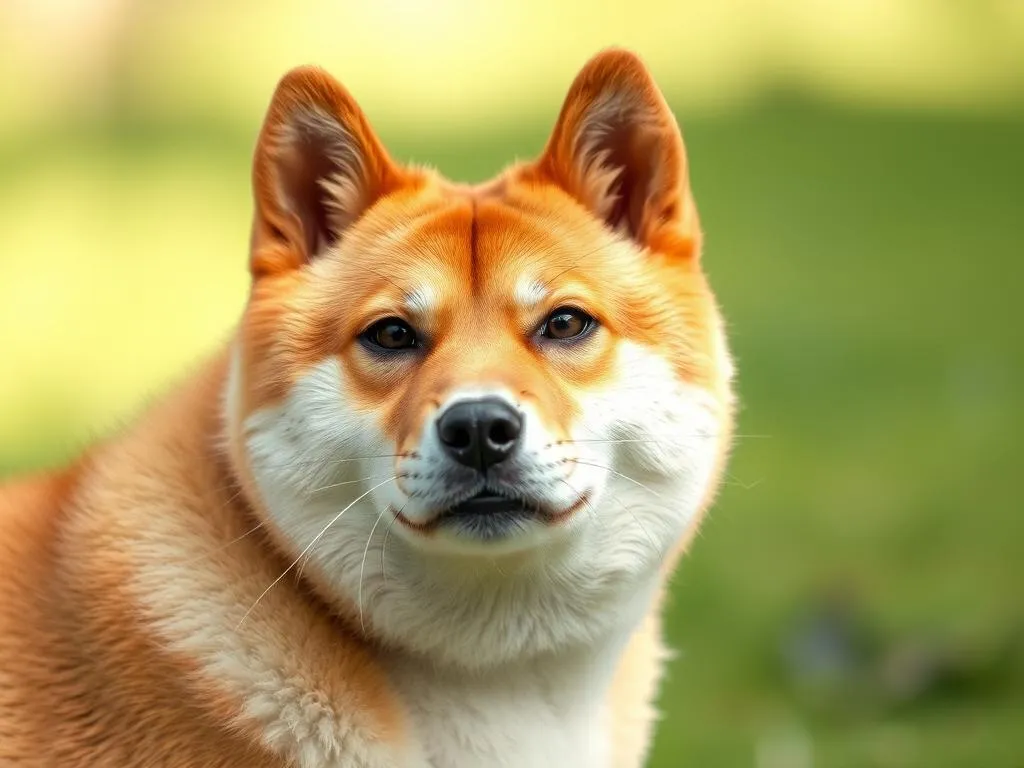
The Shiba Inu is a captivating breed known for its fox-like appearance and spirited personality. With a history steeped in Japanese culture, this small but robust dog has garnered a reputation for being both charming and spirited. However, as a pet owner considering adding a Shiba Inu to your household, especially if you already have a cat, understanding their compatibility is crucial.
Understanding Shiba Inu Breeds
General Characteristics
Shiba Inus are compact dogs that typically weigh between 17 to 23 pounds and stand about 13.5 to 16.5 inches tall at the shoulder. Their distinctive curled tail and erect ears add to their striking appearance. Temperament-wise, Shibas are known for being alert, confident, and sometimes aloof. They display a strong independent streak, often likened to that of a cat. Common behavioral traits include a tendency to be stubborn and a high energy level, which means they require regular exercise and mental stimulation.
History and Origin
Originating in Japan, the Shiba Inu has a rich history dating back to ancient times. Initially bred for hunting small game such as birds and rabbits, Shibas were valued for their agility and keen senses. Today, they hold a special place in Japanese culture, often seen as symbols of loyalty and companionship. Their name, “Shiba Inu,” translates to “small dog,” aptly describing their size.
Common Health Issues
While generally healthy, Shiba Inus can be prone to certain health issues such as hip dysplasia, patellar luxation, and allergies. Their average lifespan ranges from 12 to 15 years. Regular veterinary check-ups, a balanced diet, and proper exercise can help mitigate these concerns, ensuring your Shiba Inu remains healthy and happy.
Understanding Cat Behavior
Common Cat Traits
Cats exhibit a wide range of behaviors that can vary significantly from one individual to another. Generally, they are more independent than dogs and may display a variety of personalities from shy to outgoing. Understanding how your cat typically interacts with dogs is vital. Many cats are territorial and may be wary of new additions, including a Shiba Inu.
Stress Signals in Cats
Recognizing stress signals in cats is crucial, especially during the introduction of a new dog. Common signs of stress include hiding, excessive grooming, and changes in appetite. Cats may also display aggressive behavior, such as hissing or swatting. Being aware of these signals will help you act quickly to ease your cat’s stress.
Dog and Cat Compatibility
Factors Influencing Compatibility
The compatibility between a Shiba Inu and a cat largely depends on the individual personalities of both animals. Some Shibas have a strong prey drive due to their hunting background, which could lead to conflicts with a cat. Factors such as age, socialization experiences, and the temperament of both animals play a crucial role in their potential to coexist peacefully.
General Statistics on Dog-Cat Interactions
Research indicates that about 60% of dogs can coexist with cats if properly introduced and socialized. Certain breeds are known for their compatibility with felines, such as Golden Retrievers, Beagles, and Cavalier King Charles Spaniels. By contrast, breeds like terriers or hounds, including the Shiba Inu, may have a higher chance of viewing cats as prey rather than companions.
Will a Shiba Inu Be Good with My Cat?
Temperament of Shiba Inus
The Shiba Inu’s temperament can present challenges when introducing them to a cat. Their hunting instincts can lead them to chase smaller animals, including cats. While some Shibas can be trained to live harmoniously with cats, others may struggle due to their prey drive. Compared to other breeds, Shibas are often more independent and less eager to please, which can complicate training efforts.
Socialization and Training
Early socialization is essential for a Shiba Inu that will be living with a cat. Introducing the two animals at a young age can help them grow accustomed to each other. Training your Shiba Inu to respond to commands and to understand boundaries is crucial in fostering a positive relationship with your cat. Positive reinforcement techniques can be particularly effective; rewarding your Shiba for calm behavior around the cat can create a more peaceful cohabitation.
Case Studies and Anecdotal Evidence
Many Shiba Inu owners have successfully integrated their dogs with cats, sharing tales of companionship. For instance, one owner recounts how their Shiba Inu, initially curious and a bit too energetic, learned to respect the cat’s space through consistent training and supervision. Another owner observed their Shiba and cat cuddling together after a few weeks of gradual introductions, leading to a loving bond.
Tips for Introducing a Shiba Inu to a Cat
Preparing Your Home
Before introducing a Shiba Inu to your cat, prepare your home by creating safe spaces for both pets. Set up separate areas where each animal can retreat if they feel overwhelmed. Essential supplies may include baby gates to limit access to certain areas and scratching posts or cat trees for the cat.
The Introduction Process
When introducing a Shiba Inu to a cat, follow a step-by-step process to ensure a smooth transition:
- Initial Separation: Keep the Shiba Inu and cat in separate rooms for a few days, allowing them to acclimate to each other’s scents.
- Scent Exchange: Swap bedding or toys between the two animals to familiarize them with each other’s smells.
- Controlled Meetings: When they seem comfortable, allow short, controlled meetings. Use a leash for the Shiba Inu to prevent any sudden lunging.
- Positive Reinforcement: Reward both pets with treats and praise for calm behavior during interactions.
- Supervised Interactions: Continue to supervise their interactions until you feel confident they can coexist without direct supervision.
Ongoing Management
Monitoring and managing the relationship over time is essential. Look for signs that indicate a need for intervention, such as growling, hissing, or aggressive behavior. If tension arises, consider providing more space or revisiting the introduction process.
Alternatives to a Shiba Inu
Other Dog Breeds Compatible with Cats
If you’re concerned about a Shiba Inu’s compatibility with your cat, consider alternative breeds known for their feline-friendly demeanor. Breeds such as:
- Golden Retriever: Known for their friendly and tolerant nature.
- Basset Hound: Generally laid-back and sociable.
- Cavalier King Charles Spaniel: Affectionate and gentle with other pets.
Each breed has its own unique traits, so consider what fits your lifestyle best.
Factors to Consider Before Choosing a Breed
Before choosing a breed, think about your lifestyle, living space, and commitment level. Some breeds may require more exercise or attention than others. Assessing your pet dynamics will help you make an informed decision that benefits both your dog and cat.
Conclusion
In summary, while a Shiba Inu can potentially get along with your cat, success largely depends on individual personalities, early socialization, and training. Owners should be prepared for a gradual introduction process and remain vigilant in managing their interactions.
Ultimately, understanding both your Shiba Inu’s temperament and your cat’s behavior is key to fostering a harmonious relationship. With patience and consistent training, many Shiba Inus can coexist peacefully with cats, leading to a unique and rewarding companionship.









